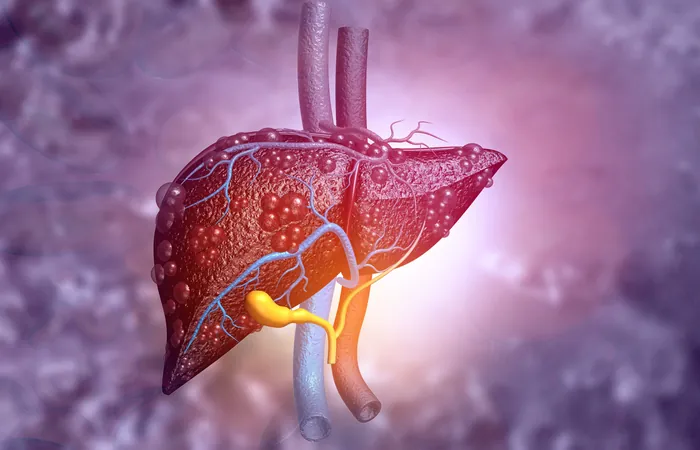
Groundbreaking Research Reveals GLP-1 Therapies May Slash Cirrhosis Risks for MASLD Patients!
2024-10-02
Summary
This article discusses a study published in *JAMA Internal Medicine* that reveals how glucagon-like peptide-1 (GLP-1) therapies may significantly reduce cirrhosis risk in patients with metabolic dysfunction-associated steatotic liver disease (MASLD).
Research Background
Conducted using data from Veterans Health Administration hospitals between 2006 and 2022, the research analyzed adults diagnosed with MASLD and type 2 diabetes (T2D) to compare outcomes of those treated with GLP-1 receptor agonists versus dipeptidyl peptidase-4 inhibitors (DPP-4i).
Key Findings
Out of 16,058 patients starting GLP-1 therapy, 14,606 did not have cirrhosis initially. The average age was around 60, predominantly male (89.1%), with many switching medications. The GLP-1 group showed a 14% lower risk of progressing to cirrhosis, a 22% reduction in complications, a 30% decrease in cirrhosis decompensation risk, and an 11% drop in all-cause mortality.
Limitations and Future Directions
Despite encouraging results, there are limitations including unmeasured confounding factors. Larger randomized controlled trials are needed to confirm findings and to understand GLP-1 therapy's full potential in cirrhosis prevention.
Conclusion
This research points towards innovative management strategies for MASLD, emphasizing the importance of early intervention and possibly altering treatment approaches for diabetes and liver health.
 Brasil (PT)
Brasil (PT)
 Canada (EN)
Canada (EN)
 Chile (ES)
Chile (ES)
 España (ES)
España (ES)
 France (FR)
France (FR)
 Hong Kong (EN)
Hong Kong (EN)
 Italia (IT)
Italia (IT)
 日本 (JA)
日本 (JA)
 Magyarország (HU)
Magyarország (HU)
 Norge (NO)
Norge (NO)
 Polska (PL)
Polska (PL)
 Schweiz (DE)
Schweiz (DE)
 Singapore (EN)
Singapore (EN)
 Sverige (SV)
Sverige (SV)
 Suomi (FI)
Suomi (FI)
 Türkiye (TR)
Türkiye (TR)